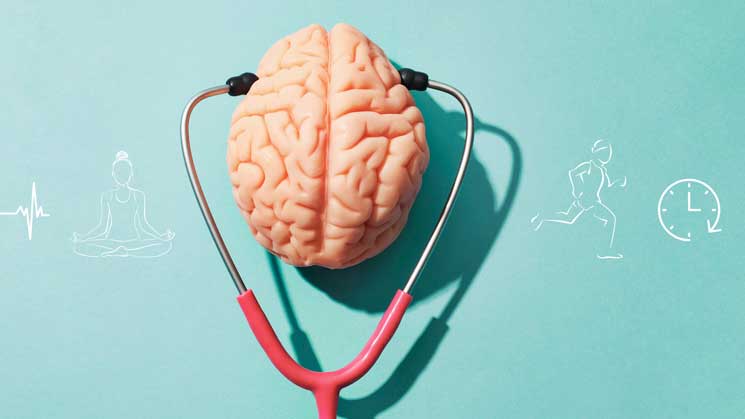With all the responsibilities of life, it’s easy to push yourself aside. But putting your mental health first is important, for yourself and for those closest to you.
Your mental health affects your emotional well-being, communication skills, learning abilities, resilience and hope. It also determines how you cope with stress, handle relationships and make decisions.
1. Exercise

It’s hardly news that exercise buffs the body, but researchers are discovering that it does something very important for mental health. In fact, it’s among the most effective, least disruptive and cheapest ways to manage or ward off depression, anxiety and other disorders.
What’s more, it occupies the mind and keeps people from dwelling on their problems, a common coping strategy that can actually worsen symptoms. Plus, regular workouts offer a tangible sense of progress that’s often easier to see than the results of therapy or medication.
But getting started can be tough, particularly when you’re already struggling with mental illness. It’s important to start small and set reasonable goals. Overdoing it or setting a goal you can’t meet will only make you feel bad about yourself, so ease into your fitness routine.
2. Get enough sleep
Sleeping well can improve your mental health by reducing anxiety, boosting productivity, and decreasing serious physical health problems like heart disease. To get a good night’s rest, try going to bed at the same time each night and avoiding distractions (like staring at your phone or TV) right before you turn in.
Mental health is more than just the absence of mental illness; it’s also the ability to manage stress, build healthy relationships, and bounce back from life’s setbacks and hardships. Caring for your mental health isn’t always easy, but it’s important to take the necessary steps to stay happy and healthy. Here are some ways to do just that. 1. Exercise. 2. Get enough sleep. 3. Talk to someone. It’s a win-win situation for everyone.
3. Be kind to yourself
When it comes to being kind to yourself, self-compassion may be one of the most important aspects. Self-compassion can help you develop a better relationship with yourself and be more willing to work on your weaknesses.
Studies have shown that when people are self-compassionate, they experience lower heart rates and sweat responses compared to those who are not. This is because being self-compassionate switches off the body’s threat response and brings it into a state of safety and relaxation, browse around here.
It can be easy to forget about the importance of being kind to yourself. Taking care of yourself, getting enough sleep, and eating well can all be great ways to be more kind to yourself. Interested in finding out more about improving your mental health? Fill out our brief questionnaire and get matched with a therapist within 48 hours.
4. Talk to someone
It can be really helpful to talk about how you’re feeling. It might be with someone you know like a friend, mentor or family member, or a professional like a counselor or therapist.
Sometimes it can be hard to find the right person to talk to – especially because mental health is so misunderstood. It might be that the person you speak to doesn’t understand what you are saying and can be unhelpful or even say things that hurt your feelings.
This isn’t their fault. They might just need time to come to terms with what you are telling them and may not have the right information about mental health (for example, they may not know that counseling or psychotherapy is a good option). They might also not be able to help you.
5. Take a break

You likely have an intuitive sense that taking breaks to rest and recharge is good for mental health. Whether it’s a walk in nature, meditation or simply spending time without to-dos, a short break calms the central nervous system and shifts brain states, improving well-being.
Breaks also help prevent burnout by reducing stress and allowing you to come back to the task at hand refreshed. Plus, they can help improve your mood, bolstering motivation.
Conclusion:
It’s important to try new things that make you feel happy. This may include trying a healthy hobby, learning a new skill or even making leisure time a priority in your life. Just make sure to avoid self-medication with drugs, kava, alcohol or tobacco that are harmful for your health and can actually make you feel worse.

